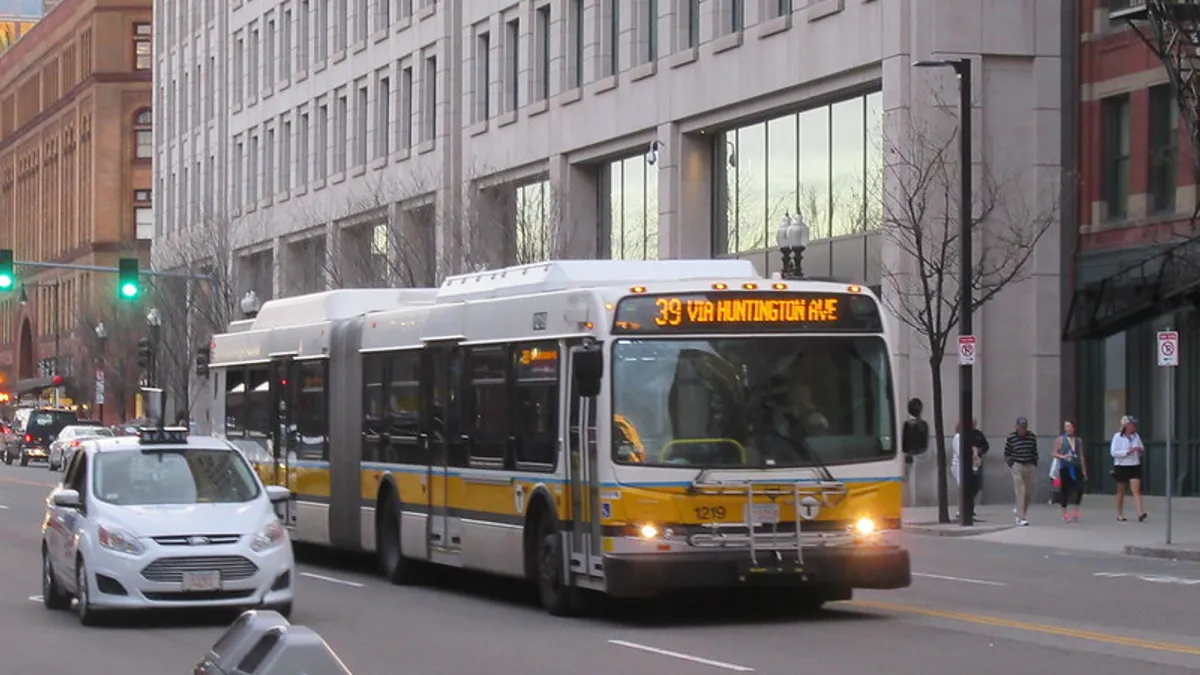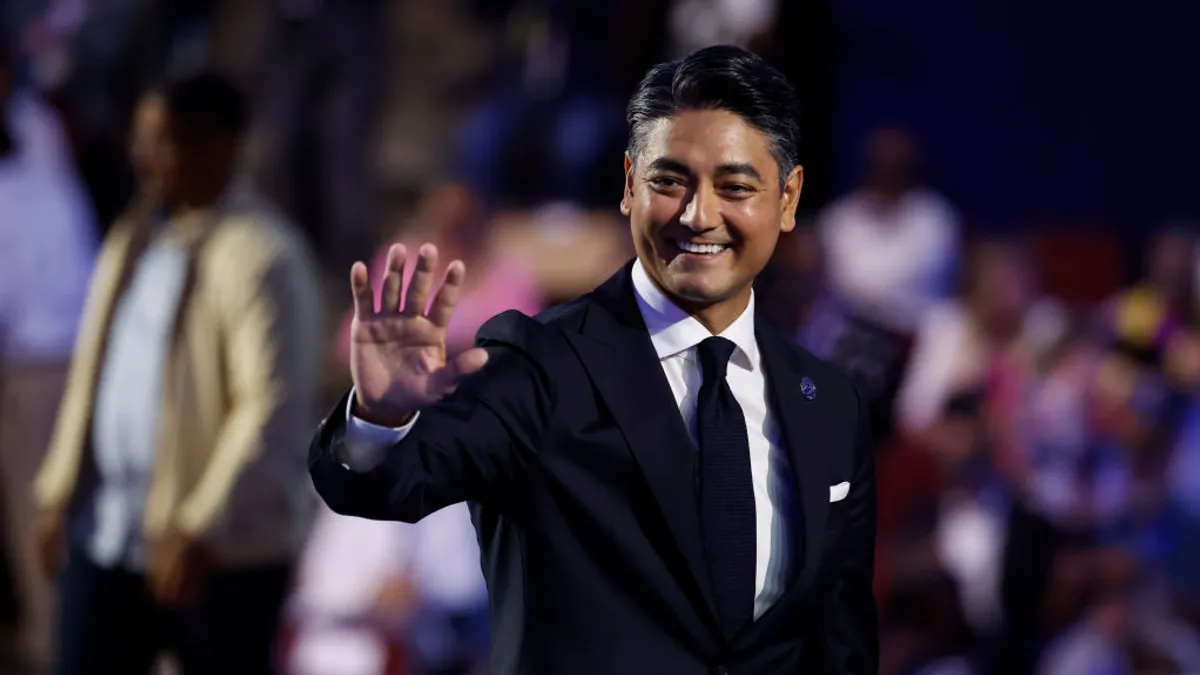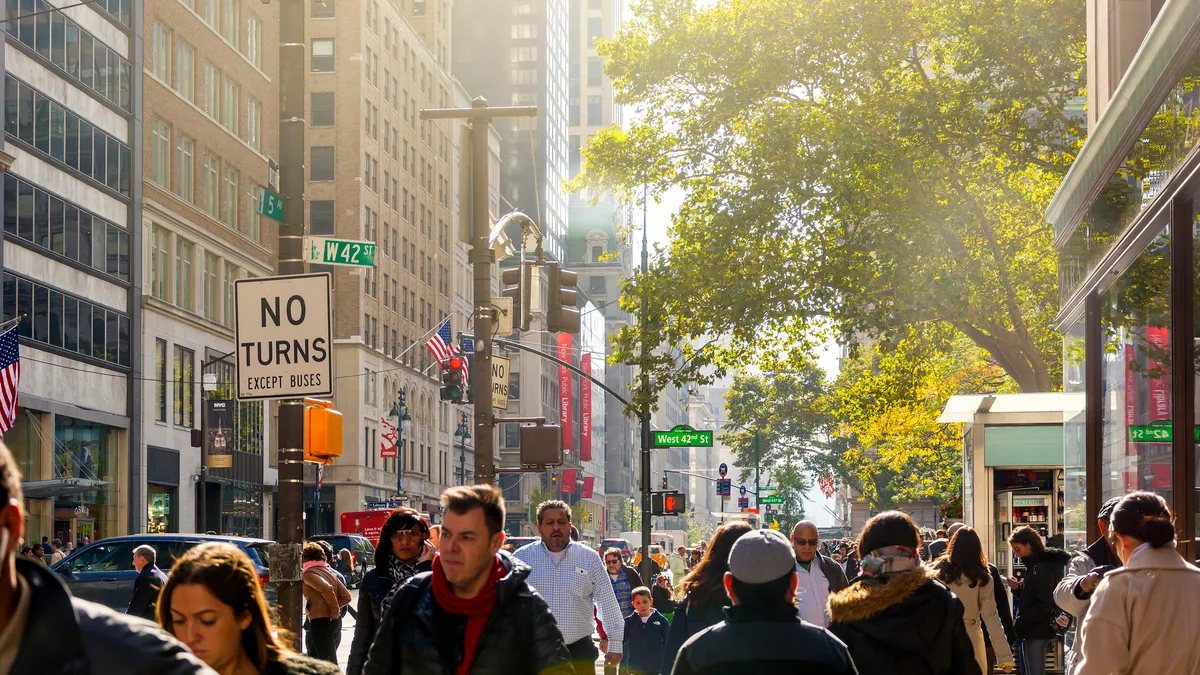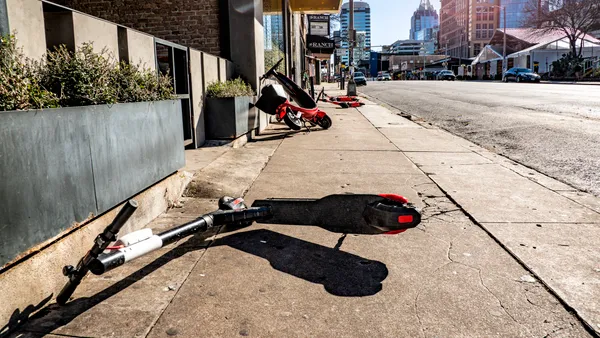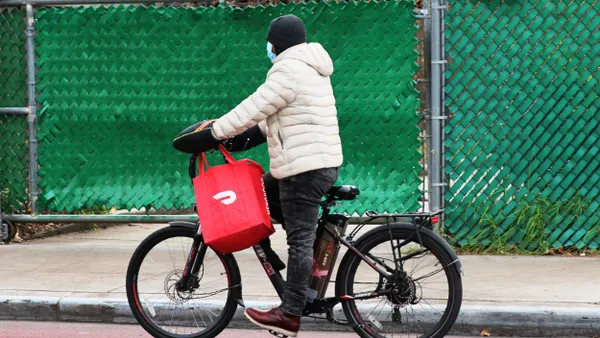Dive Brief
- The City of Boston is offering a free public transit pilot for up to 1,000 employees who work in five of the city's Main Street districts.
- Pilot participants will receive a pre-loaded Massachusetts Bay Transportation Authority (MBTA) pass with $60, and other participants will receive two cards after four weeks that will be worth up to $60. The city will also offer free passes for unlimited rides through the Bluebikes bike-share program.
- The pilot is designed to support a sustainable and equitable recovery from the pandemic, according to local leaders."We have to lift up workers and make sure they have access to reliable transportation. That is essential to an economic recovery that is equitable," Acting Mayor Kim Janey said during a press conference.
Dive Insight:
The free public transit pilot comes as the MBTA has seen major cuts to its service during the pandemic, something Mayor Janey has called on the agency to restore as soon as possible.
"MBTA service cuts short-change the needs of Boston’s workers and ignores the sacrifices they make each day to keep our city running. Service cuts make buses and trains more crowded, undermining our efforts to stop the spread of COVID-19," Janey said.
Cuts to transit service deepen the city’s public transit system inequities, according to Janey. "For example, Black bus riders in Boston spend 64 more hours per year on their buses as they navigate routes with large access gaps in communities of color," she said.
The MBTA has faced public and political criticism for its service cuts amid the pandemic, but recently said it would restore service as soon as possible, according to WBUR. That announcement also came on the heels of the MBTA being poised to receive at least $845 million in relief through the American Rescue Plan, in addition to the $1.1 billion it received in earlier stimulus funding, WBUR reports.
Boston isn’t alone in offering zero-fare transit for certain residents. Kansas City, MO, Richmond, VA and Los Angeles are all working on their own versions of zero-fare transit systems, according to Art Guzzetti, vice president of policy and mobility at the American Public Transportation Association (APTA). Meanwhile places like Austin, TX and Portland, OR have implemented fare-capping for low-income riders, he said.
As more cities consider pursuing similar zero-fare initiatives, one key obstacle to those programs will likely be the cost of lost fare-revenue.
The big transit systems take in a significant amount of money through the fare box, according to Guzzetti. "They're carrying a lot of riders and they're collecting a lot of money and to forego that is a big hole in their budget."
If a city foregoes fare revenue, Guzzetti posed the question of whether the transit agency should bear that cost or whether it should come from some other social service allocations. "Over time, we're gonna have to find that equilibrium," he said.
MBTA local buses, however, only yield 5% of the system's total fare revenue, according to Kristiana Lachiusa, director of transit and outreach at Boston-based transportation advocacy nonprofit LivableStreets Alliance.
And there are also costs associated with collecting fare revenue, according to Lachiusa. The transit system in Worcester, MA, for example, spends about $850,000 per year on fare collection, while receiving about $3 million in local bus fares. The amount spent on fare collection is about one-third of the total money received, she said.
Ultimately, the pandemic has demonstrated that a reliance on fare revenue is not a sustainable and equitable way to fund our transit system, Lachiusa, said. "In order to really have a fare-free transit system sustainably work, we’re going to need longer-term changes in funding," she said.
Looking ahead, versions of zero-fare transit could also help entice city residents back onto public transit in a post-pandemic world. Fare policy could be part of the plan to help win back riders, according to APTA's Guzzetti.



